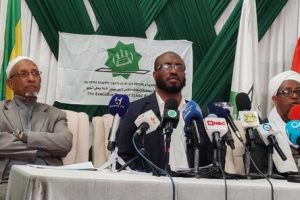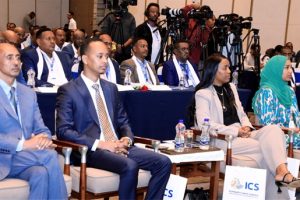
Most recently, House of Peoples Representative named members of the newly established National Reconciliation Commission. The Commission, which is comprised from 41 members that are selected from various sects, is expected to investigate the wrongdoings and human rights violations that occurred in country’s past, and to come up with ideas that would lead the nation towards reconciliation, mutual understanding and respect.
In the past decades, Ethiopia has gone through brutal activities and harsh social and political conflicts. Several Ethiopians have faced various atrocious sufferings due to their political outlook and identities. Hundreds of thousands people were imprisoned and thrown into exile. Many tortured, injured and displaced. Others lost their lives or obliged to run away. The sufferings have built layers of grudges in people’s mind and hearts. Even these days, the rancor is reflected in various ways.
National reconciliation or Truth Commission has been set up in most of world countries which had gone through such situations as a means to undertake serious national reconciliation program. Since the early 1980s, the method has been taken as one of the most accepted mechanisms to address ethnic, racial, political, and class-based divisions and human rights abuses of the past. Those countries, hence, effectively employed the method to investigate the history of violations, address the causal issues, promote tangible reconciliation all with the view to reduce risks of conflicts from happening again.
Irrefutably, if there are transgressions left up in the air, and marked scars in the hearts of individuals, conflict is always inevitable. To treat and heal the wound, hence, conducting holistic and integrated reconciliation is an imperative move.
Coming to the case of Ethiopia, the measure the government has taken to establish National Reconciliation Commission is ideal to get to the bottom of grudges, come up with new ideas for reconciliation and prevent their future recurrence.
However, for this to occur, the central goal of the Commission should be valued and be a shared responsibility for all, regardless of any differences. Likewise, indigenous conflict management approaches, cultural values and norms of the society should be respected and taken as part and parcel of the reconciliation process. It should also operate independently from the government so as to maintain credibility.
Equally important, the appointees should entirely be impartial and act in accordance to the principle of neutrality; irrespective of any jaundiced eye.
Hatred yields nothing but vengeance and destruction. And such things get us nowhere rather than tearing us apart that some other countries suffered. Therefore, all pertinent bodies, civil society and other stakes, including the government, should be committed to renew the effort to implement effective reconciliation program by supporting and providing the necessary input to the Commission.
The Ethiopian Herald February 20/2019





